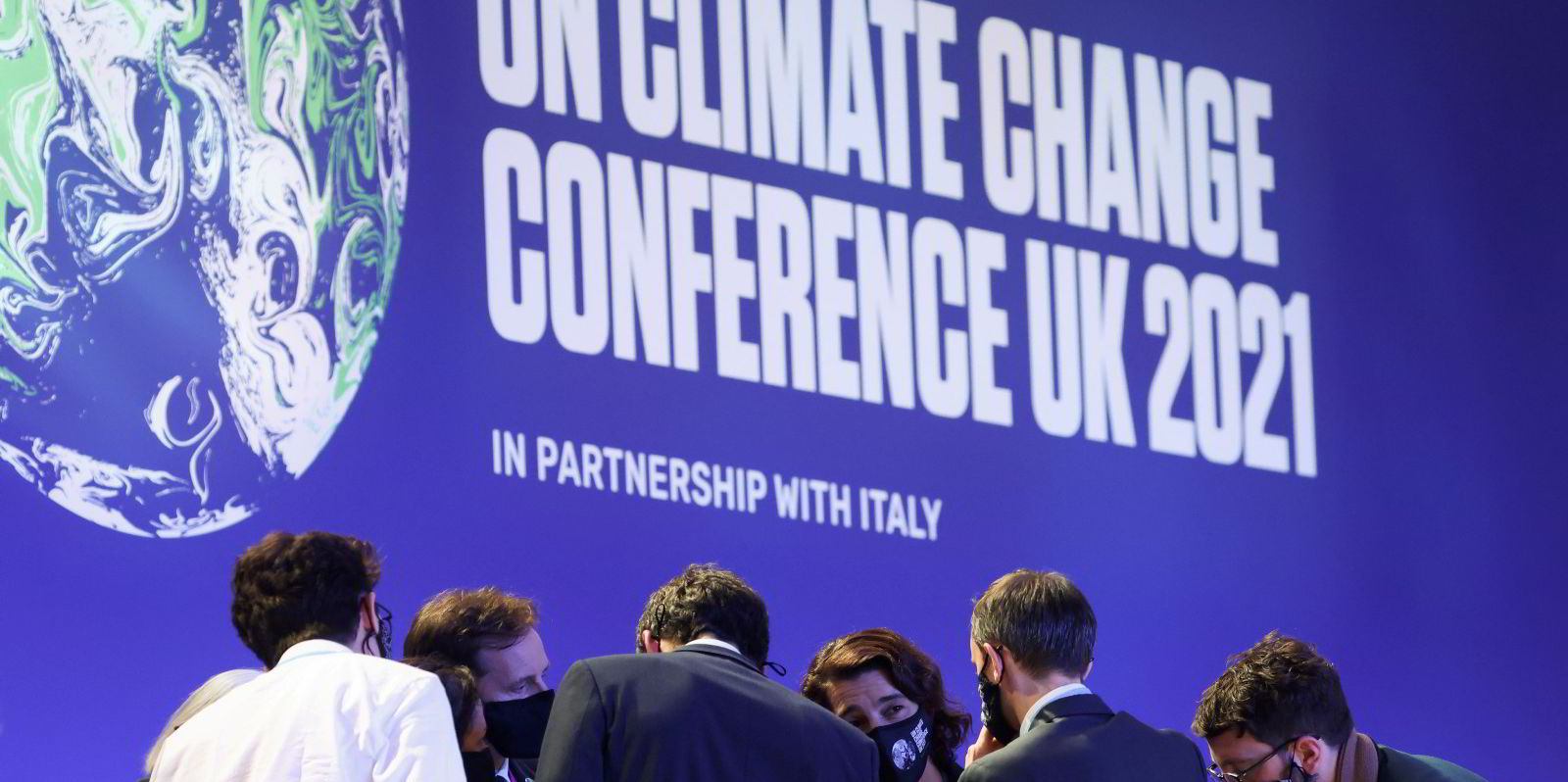The COP26 climate-change conference that concluded in Glasgow presents a challenge for regulators and shipping industry stakeholders: turning a series of broadly worded pronouncements and targets into concrete actions.
While experts on efforts to decarbonise shipping said the greater spotlight on the industry at the United Nations climate conference was a good thing, they said the event’s ultimate impact will depend on the steps taken on the road ahead to iron out the practicalities of reaching more ambitious targets.
COP26 closed last Saturday, slightly more than a week before the International Maritime Organization’s Maritime Environmental Protection Committee (MEPC) was due to meet to discuss decarbonisation measures. At the event, most shipping industry stakeholders in Glasgow appeared committed, or at least resigned, to the IMO adopting a goal of net zero by 2050.
Bo Cerup-Simonsen, chief executive of the Maersk Mc-Kinney Moller Center for Zero Carbon Shipping, said it will take time to determine the impact of COP26.
But he added that the wide focus on zero-carbon emissions by 2050, rather than the IMO’s current target of a 50% cut by the middle of the century, will be reflected in the upcoming strategy revisions by the shipping regulator.
Cerup-Simonsen said it was important that shipping was acknowledged at high levels in the international community like never before, and he said the event served to highlight private sector first-movers on decarbonisation efforts.
“Even if this is a limited portion of the entire industry, these first-mover activities are going to be very powerful in demonstrating that decarbonisation of shipping is possible, and hopefully also in informing and inspiring the shaping of global policy and regulations,” he said.
“There are some very concrete developments at COP26, which I truly believe will be impactful at MEPC and also in the bigger picture.”
Guy Platten, the secretary general of the International Chamber of Shipping (ICS), said COP26 enabled a platform for the industry to put its case to government officials.
He said that it showed the industry is committed to net-zero carbon emissions, but that there is a need for research and development, as well as for market-based measures such as a carbon price and to ensure a “just transition”.

Among the shipping-focused highlights of the climate conference, the US, UK, Norway and others signed a declaration to push for zero-carbon emissions from shipping by 2050.
Also, 19 countries signed the Clydebank Declaration for Clean Shipping Corridors, aiming to establish at least six green shipping routes by the middle of this decade.
But Platten said there is a need to “operationalise that ambition” to turn declarations into reality.
He said now is the time to build on the work of COP26 going forward.
“We’ve had a lot of challenges and declarations and targets,” he said. “I think we need to get on and do stuff now.”
The MEPC meeting that starts on Monday will be key to achieving that, as the ICS aims to persuade member states to take forward its proposal for a $5bn research and development fund.
Several nations have asked the committee to also take steps to move towards the zero-carbon goal, and while there does not appear to be fundamental disagreement over that target, there are fears that developing nations could hold out for financial support from their richer peers.
Still, some nations that could bear the brunt of the impact of climate change are pressing for urgent action.
Lucy Gilliam, the senior shipping policy advisor at non-governmental organisation (NGO) Seas at Risk, said it was positive that climate-vulnerable nations urged the international community to focus on keeping global warming to a 1.5C increase, rather than 2C, and the attention on making progress by 2030.
She also welcomed the declarations at COP26 calling for measures such as green shipping corridors, but she said they are not enough.
Gilliam, whose organisation is a member of the Clean Shipping Coalition, said that at the MEPC meeting in November, the group plans to press for the IMO to ramp up the ambitions of its short-term measures, such as energy efficiency and carbon intensity rules.
And the coalition of NGOs wants an agreement on a switch to distillate fuels in the Arctic to reduce black carbon emissions.
“Great, shipping is on the climate agenda,” she said. “But what I’m not seeing is the specific actions by the IMO or the industry to actually reduce the emissions by 2030.”




